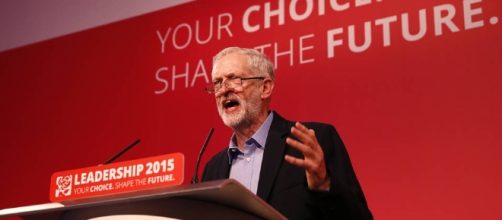The new chancellor, Philip Hammond, will soon unveil the first post-Brexitspending plans in the autumn statement. The Notting Hill Set's (Cameron, Osborne and their cronies) response to this time of economic uncertainty would be a policy of more austerity (and therefore cuts) to confront the endless task of closing the probably widening £70bn Brexit deficit. The vast majority of economists had, for while, been telling Osborne that austerity was failing, in that it has not achieved its supposed goal of bringing the national finances into surplus (though other cynical types say that the realaim, of an upward redistribution of wealth, was achieved).
May's new regimemustpursue a new policy: investment. It's now Labour's job to fight for it.
Investment
The solution to our faltering economy, according to the CBI, Britain's big business group, is infrastructure investment. Few disagree when the fundamentals of the British economy are so weak. The bestway to strengthen these fundamentals, particularlyproductivity, is through infrastructure and innovation investment. This means more borrowing, which, for the debt averse, may seem ridiculous. However this would be borrowing to invest and, just as companies borrow to invest in new factories or showrooms, it allows us to reap long-term rewards.
NHS funding
There is, however, something else that Hammondcould do.
Something that the Labour Party is fighting for. The chancellor should also invest in strong public services. Cameron, at the last general election, claimed that a strong NHS needed a strong economy, however this is an oversimplified and counterproductive view. In fact, Labour must point out thatfor a strong economy we need a stronger NHS. Public services are at the beating heart of our economy, just as much as roads and rail tracks. Without an NHS free-at-the-point-of-delivery, our economy would likely be much smaller. The cost of people's sick leaveis huge, with cancer alone costing the economy £15bn a year! If illpeople were refused free treatment, many would delay visitinga doctor, letting illnesses get worse and causing people to take muchmore time off, costing theeconomy billions.
The NHS, according to the independent King's Trust, needs £15bn a year extra. So let's properly fund our NHS, including underfunded mental health services, so that we can swiftly reintroduce people to the working world in order to contribute to building a strong economy.
Strong schools
Another fundamental weakness in our economy is education. Our education system is such that a clever state school pupilis likely to be less successful than a stupid private school pupil. It is not only morally reprehensible to let clever children down because of their family's wealth, it is also economically incoherent.Our economy, depends on people fulfilling their potential. When one of us fails then all of us fail.
The failures add up and make us allpoorer, a number that the OECD, the Remain campaign's second best friend (its best wasthe IMF), puts at £135bn a year! Labour must highlight this.
Stolen narratives
During the last election, the Conservatives were only too happy to park their tanks on Labour's lawn, claiming that they were the party of working people. However their spending promises and promises not to cut (tax credits and disability benefit) were illusory. Nevertheless they won a parliamentary majority and so this tactic of using your opponent's language, in addition to greater integrity in promises than the Tories, needs to beinvestigatedby the left. So Owen Smith and Jeremy Corbyn, listen up!
Britain is a nation of shopkeepers and we need to speak to their economic minds. We need to argue not that public services are a cost that we must continually increase, but an investment for the future. Granted, it won't be enough to win the next general election, particularly with a divided Labour party, but it will certainly help. So Labour: park your tanks on the Tories lawn and claim your victory!

